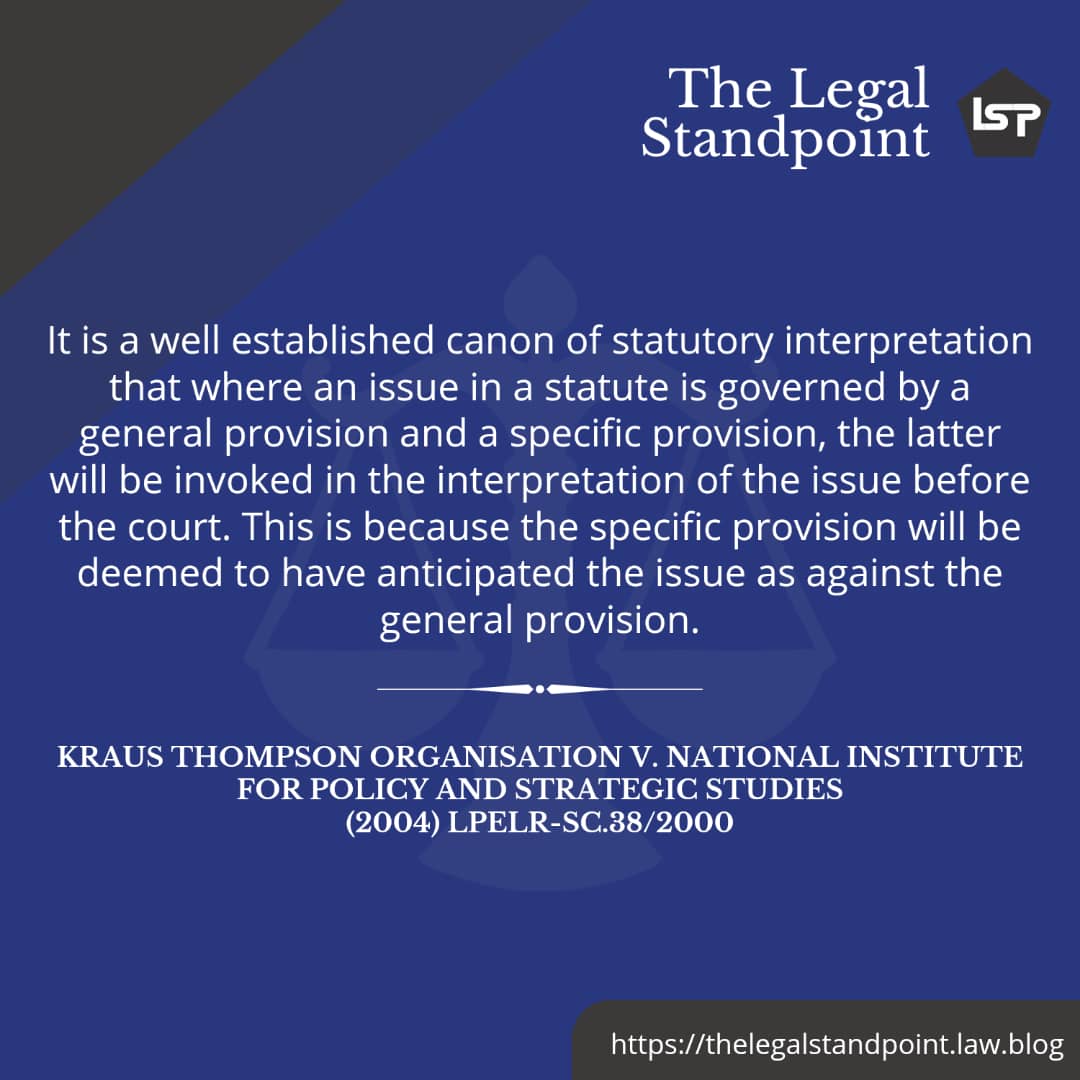
It is a well-settled principle of law, having received judicial pronouncements in a plethora of cases, that where an issue is governed by a general and specific provision, the latter will prevail. Jack v University of Agriculture Makurdi 2004 LPELR-SC.262/2000, Ibori v Ogburu (2004) 15 NWLR (PT.895) 154, etc.
Putting it into a context, while the code of conduct of every University stipulates that students shall dress moderately and reasonably, each Faculty of Law’s code of conduct – brochure or prospectus – as it may be called, states that the regulatory dress of all Law students in Nigeria shall be White on Black (Grey or Blue). Hence, a law student who though dressed moderately by putting on a pink blazer cannot rely on the general provision of the University’s code of conduct because his/her Faculty already anticipates this occurrence and provides the mandatory Black on White. Hence, the specific provision will prevail.
Relating this example to legal matters, section 251(1)(P) of the Constitution states that action by or against any agency of the Federal Government shall commence at the Federal High Court. However, the combined effects of section 46(1) of the Constitution and Order 1 Rule 2 of the Fundamental Rights (Enforcement Procedure) Rule 1999, state that if the issue involves a breach of a Fundamental Human Rights, the State High Court, just like the Federal High Court, has concurrent jurisdiction to adjudicate on the matter. Hence, while section 251 gives a wide blanket that issues involving the federal agency should be instituted at the Federal High Court, section 46, though recognizes this right, specifically provides and prevails when it centers on Fundamental Human Right issues.
Thank you for reading. See you next week😍.
